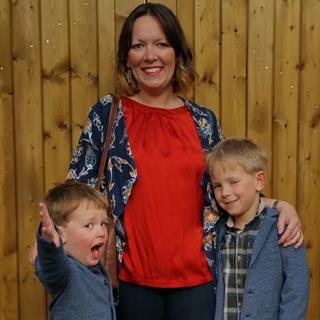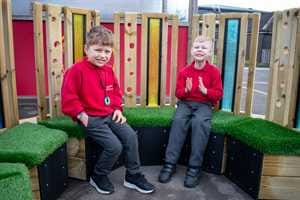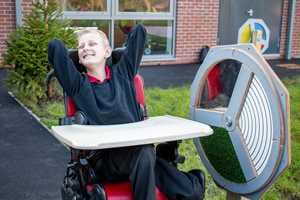
Special Educational Needs
Using Outdoor Musical Instruments to Support a Child’s Developing Auditory Processing Skills, and Improve Their Ability to Listen Attentively!
“Music comes to me more readily than words.” – Ludwig Van Beethoven
Scientists have been telling us for years that listening to music and music-making during childhood has a hugely powerful and positive influence on brain function.
Researchers might not yet fully comprehend all the complexities behind the many different ways that music supports cognitive skills such as auditory processing - but what we do know for a fact is that music provides numerous therapeutic benefits for children of all ages and abilities.
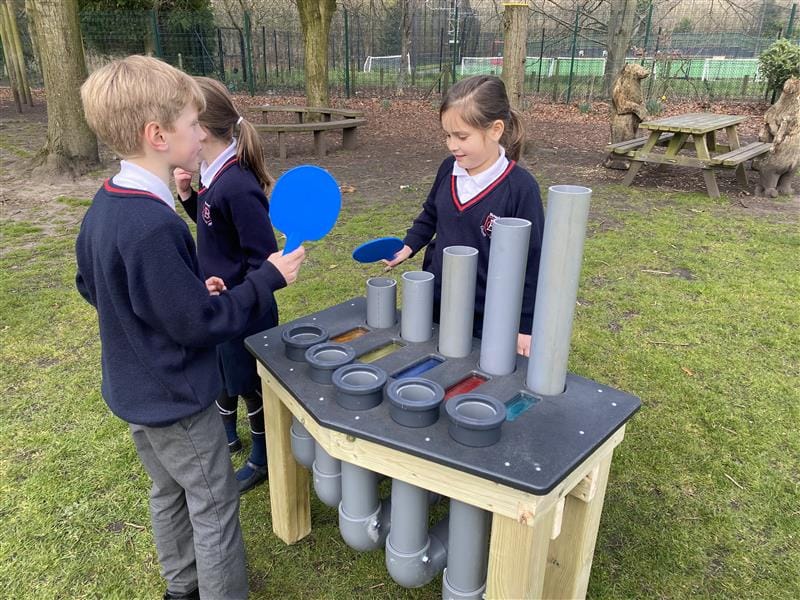
Studies have indicated that experiencing music during childhood increases grey matter and strengthens brain mechanisms, such as the connectivity between hemispheres, building a neural framework from which important life skills can grow.
As a result, memory, executive function and even language acquisition can be improved through music.
.png)
In this blog, we take a look at how music, amongst other things, can be used to support a child’s developing auditory processing skills, which have a huge influence on their ability to learn.
We have been busy developing a brand new range of outdoor musical instruments for playgrounds to support learning through play - and they’re now ready to bring the joy and wonder of music-making directly to the school playground!
It’s worth remembering that a child’s auditory system continues to develop and mature well into their teenage years, so it’s important to provide stimulation for this as they grow. If a child has been diagnosed with Auditory Processing Disorder, they can really benefit from supportive measures in school, including musical activities, to help them develop better listening skills over time.
What are Auditory Processing Skills?
Auditory Processing Skills are a complex set of neurological processes that allow us to interpret sound. It’s not just about hearing acuity, i.e. the bit that happens inside our ears - receiving a sound.
Auditory processing happens in the brain. It’s the entire process involved in how we perceive a sound.
Auditory memory is essentially our ability to take in sound, process the information heard, store it in our memory and then remember and recall what we have heard.
Product Spotlight
Within this, auditory processing skills also allow us to locate the source of a sound, detect the difference between sounds, and recognise specific sounds in the midst of others. They allow us to identify and attach meaning to sounds, and to give auditory feedback, changing the way we produce and use speech to suit our environment.
Auditory processing skills are hugely influential on our ability to read and communicate with others and are critical to learning. They include phonemic awareness - the ability to identify, segment, blend and manipulate sounds. Naturally then, in the Early Years and through KS1 and KS2 as a child learns to read and develop language, they’re reliant on their auditory system to help them pull everything together.
.jpg)
There are many children who have no difficulty with hearing acuity (and a hearing test will confirm that they can hear perfectly well), but who struggle to process what they hear because their ears and their brain don’t coordinate fully.
How Does Auditory Processing Disorder Affect Children
There’s a big difference between hearing and listening. One doesn’t necessarily always follow the other, and of course, it’s possible to hear without listening attentively.
Auditory Processing Disorder (APD) causes a person to have difficulty understanding the sounds they hear, including spoken words. Information is given to them orally, whether in conversation or by instruction, is often misunderstood or can be missed entirely. A child with APD may experience difficulties with:
- Deciphering and remembering what they hear
- Understanding and following spoken instructions
- Understanding long sentences
- Understanding people speaking quickly, or with different accents
- Picking the relevant sounds of speech out of any general background noise
- Differentiating between similar words
- Hearing, remembering and repeating something word for word
- Paying attention
- Organising words into clear spoken thoughts
- Reading and spelling
APD can present children with real everyday challenges, mainly because of their reduced ability to respond appropriately to sounds. It’s quite common for APD to co-exist alongside other Special Education Needs and Disabilities, including neurodevelopmental diagnoses such as ADHD, ASD and Dyslexia.
.jpg)
There’s no specific cure for APD, but there are plenty of therapies and techniques out there that, with professional support, can help children to improve their auditory processing skills.
Most activities are cognitive exercises to improve listening and concentration, and they can be of benefit to all children in developing their auditory memory, APD diagnosis or not.
Through music especially, auditory training activities can be fun and pleasurable life-enhancing experiences for all children.
What are Auditory Processing Skills?
Auditory processing skills are a complex set of neurological processes that allow us to interpret sound. It’s not just about hearing acuity, i.e. the bit that happens inside our ears - receiving a sound. Auditory processing happens in the brain. It’s the entire process involved in how we perceive a sound.
Auditory memory is essentially our ability to take in sound, process the information heard, store it in our memory and then remember and recall what we have heard.
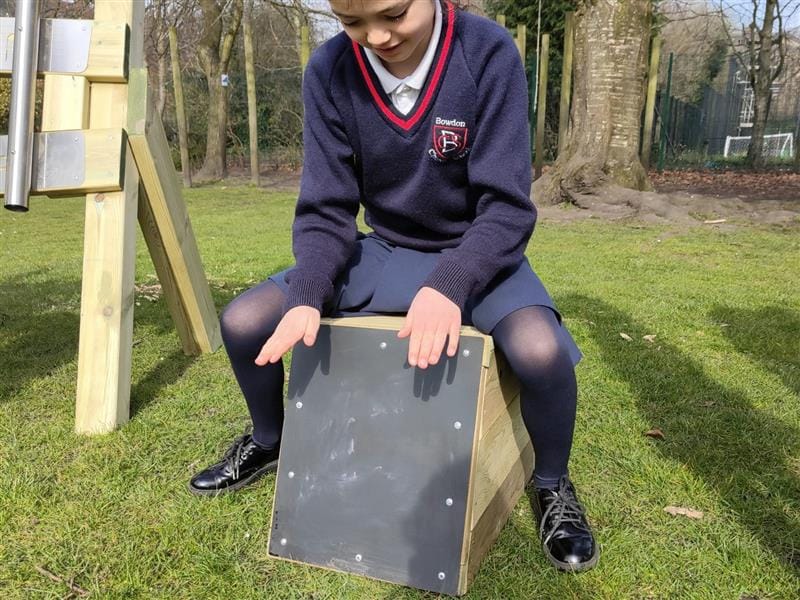
Within this, auditory processing skills also allow us to locate the source of a sound, detect the difference between sounds, and recognise specific sounds in the midst of others. They allow us to identify and attach meaning to sounds, and to give auditory feedback, changing the way we produce and use speech to suit our environment.
Auditory processing skills are hugely influential on our ability to read and communicate with others, and are critical to learning. They include phonemic awareness - the ability to identify, segment, blend and manipulate sounds.
Naturally then, in the Early Years and through KS1 and KS2 as a child learns to read and develop language, they’re reliant on their auditory system to help them pull everything together.
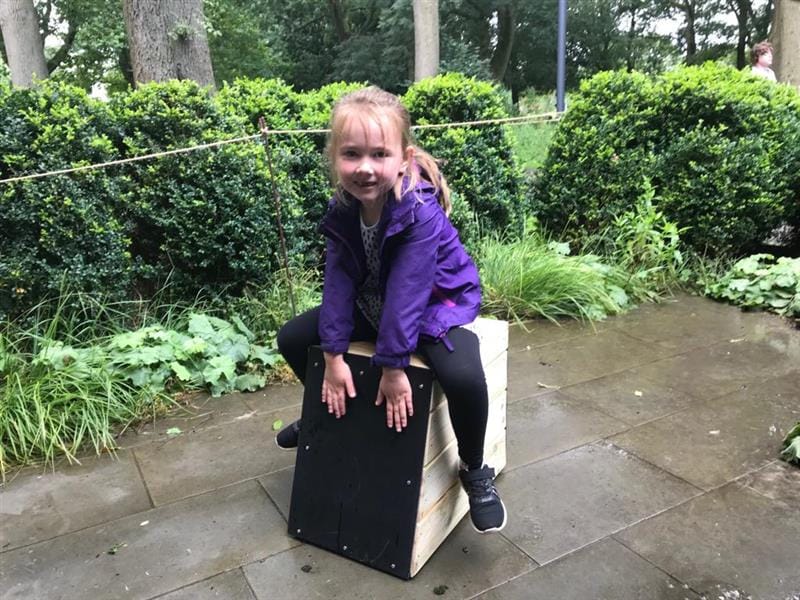
There are many children who have no difficulty with hearing acuity (and a hearing test will confirm that they can hear perfectly well), but who struggle to process what they hear because their ears and their brain don’t coordinate fully.
How Does Auditory Processing Disorder Affect Children?
There’s a big difference between hearing and listening. One doesn’t necessarily always follow the other, and of course, it’s possible to hear without listening attentively.
Auditory Processing Disorder (APD) causes a person to have difficulty understanding the sounds they hear, including spoken words. Information is given to them orally, whether in conversation or by instruction, is often misunderstood or can be missed entirely. A child with APD may experience difficulties with:
- Deciphering and remembering what they hear
- Understanding and following spoken instructions
- Understanding long sentences
- Understanding people speaking quickly, or with different accents
- Picking the relevant sounds of speech out of any general background noise
- Differentiating between similar words
- Hearing, remembering and repeating something word for word
- Paying attention
- Organising words into clear spoken thoughts
- Reading and spelling
APD can present children with real everyday challenges, mainly because of their reduced ability to respond appropriately to sounds. It’s quite common for APD to co-exist alongside other Special Education Needs and Disabilities, including neurodevelopmental diagnoses such as ADHD, ASD and Dyslexia.
.jpg)
There’s no specific cure for APD, but there are plenty of therapies and techniques out there that, with professional support, can help children to improve their auditory processing skills.
Most activities are cognitive exercises to improve listening and concentration, and they can be of benefit to all children in developing their auditory memory, APD diagnosis or not.
Through music especially, auditory training activities can be fun and pleasurable life-enhancing experiences for all children.
Ways to Support a Child’s Auditory Development
There are numerous things that can be done to support children with ‘training’ their auditory processing systems during the school day - and none of them require specialist equipment or any kind of formal medical supervision.
Music and musical instruments are right up there as some of the very best resources for training auditory memory as they naturally engage children - who don’t love to listen to music?!
.jpg)
Auditory training activities through music can bring huge benefits to all children, from improved attention and understanding to greater happiness, self-confidence and enjoyment in their learning.
When engaging children in any activity, particularly where a child has auditory processing difficulties, the NHS recommends the following do’s and don’ts:
Do:
- Talk face to face
- Use pictures and text
- Repeat or rephrase things if necessary
- Use carpet and soft furnishings to reduce room noise
Don’t:
- Cover your mouth when talking
- Talk in long complicated sentences
- Speak too fast or too slow
- Have background noise, like TV and radio”
Location, Location…
Seating position is one of the most obvious considerations for children with different educational needs. For any activity, a child with APD needs to sit in a position at the front of a learning group, close to the teacher, where they have a better chance of being able to focus on what the teacher is saying. This way, they will have a better sight of a teacher’s visual cues with less obstruction, and less interference with the teacher’s voice.
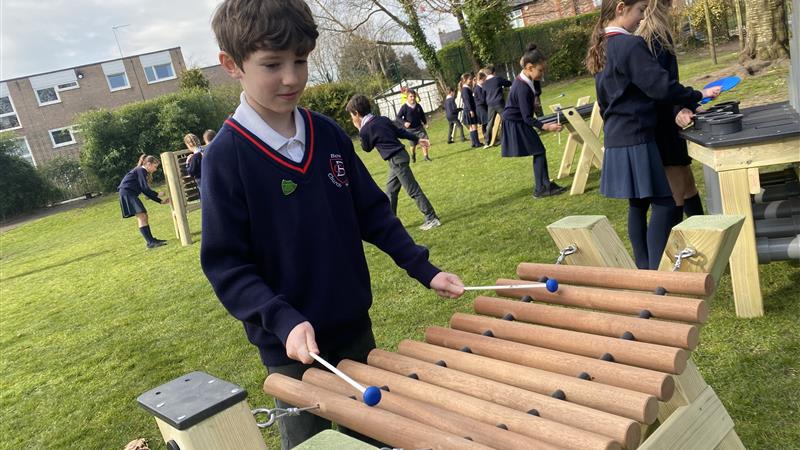
Soft furnishings can help too - cushion pads on seats both indoors and out (see our all-weather artificial grass-topped seating for playgrounds as an alternative) absorb sound rather than allowing it to bounce around, and can help to block out distracting background noise.
Visual Cues and Key Words…
Visual cues, especially in the Early Years as children are settling into the school environment and getting used to new timetables, routines and everything that’s expected of them, are always extremely beneficial.
Explain and use hand signals, labels, pictures, colour cards etc alongside verbal instructions, and have a cue for when silence and eye contact is required when you’re communicating important information.
Any verbal instructions and important communications should be spoken clearly, slowly and using appropriate intonation to emphasise key words, in order to help a child with auditory processing issues pick them up more easily.
Telling the Story…
We’re not about to start making the case for reading - grandmothers, eggs and all that! But while we’re here, it is worth mentioning that reading and storytelling are known for their strength in developing auditory processing skills.
.jpg)
This is especially true when new language and vocabulary are clearly introduced and children are encouraged to focus on new words they see and hear.
Storytelling through music and song, following a simple and catchy rhythm for children to join in, is a great auditory training exercise! Incorporate percussion instruments for greater depth of learning.
Music and Sound…
Indoors or outdoors, wherever you can find different sounds to listen to - the act of drawing attention to different sounds, noticing, listening to and recognising them is a simple but effective exercise for building up auditory memory.
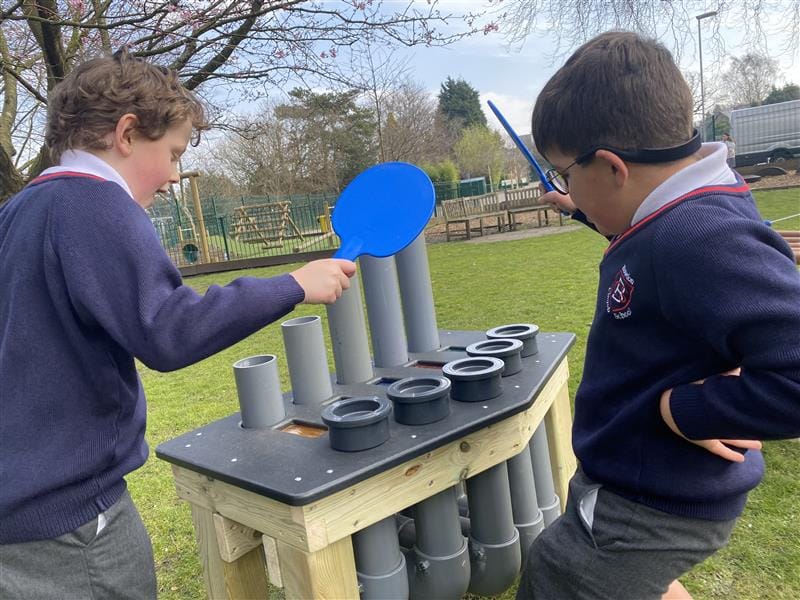
Focus on a combination of spontaneous environmental sounds such as birds in the trees, or an aeroplane flying overhead, along with a good variety of sound-producing resources that children can use themselves and that make different sounds - musical percussion instruments, hand-clapping, splashing in water etc.
Begin by direct face-to-face contact and talk to the child clearly and slowly, pointing out a particular sound as they’re engaged in whatever they’re doing.
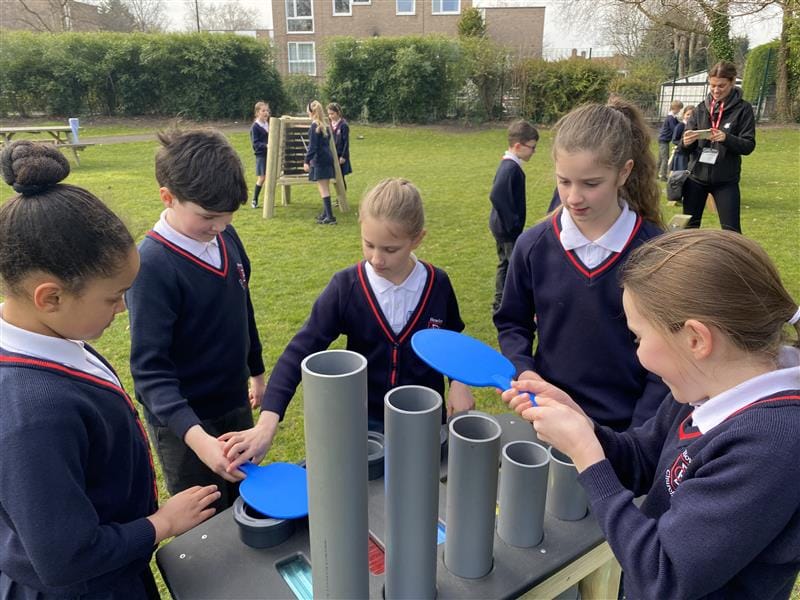
Ask them to listen to the sound. Repeat this daily and regularly, starting off with simple and more ‘obvious’ sounds, and as they get used to this technique you can ask them to do more.
Musical Patterns…
Listening to music challenges the brain to look for patterns, and playing an instrument challenges the brain to recreate those patterns. It’s a more detailed process than we care to realise when we’re happily enjoying a favourite song! We differentiate between tones, usually at a fast pace, and process multiple sounds while picking out the main melody.
Asking children to identify the pattern of sounds is an excellent way of developing aural memory. Our brain’s plasticity - its capacity to adapt - peaks in childhood. Young brains are primed to change in response to experiences encountered, and this is hugely beneficial for children with APD.
.jpg)
Through activities involving repetitive musical patterns, their ability to process sounds can certainly be improved.
Using Outdoor Musical Playground Equipment during playtimes, music lessons and other relevant activities to play simple, 3 or 4 beat rhythms.
When children listen carefully and try to repeat that rhythm, they’re actively engaged in exercising their auditory processing systems. Just as our muscles build strength from physical exercise, so connections in the pathways between the ears and the brain can strengthen over time.
The more a child’s skills improve, the more complex the patterns you can play together to encourage them to develop their ability at their own pace.
Outdoor Musical Instruments are a wonderful way to engage young children in a fun, informal, stimulating and brilliantly engaging learning environment - whatever the subject and whatever their individual challenge may be.
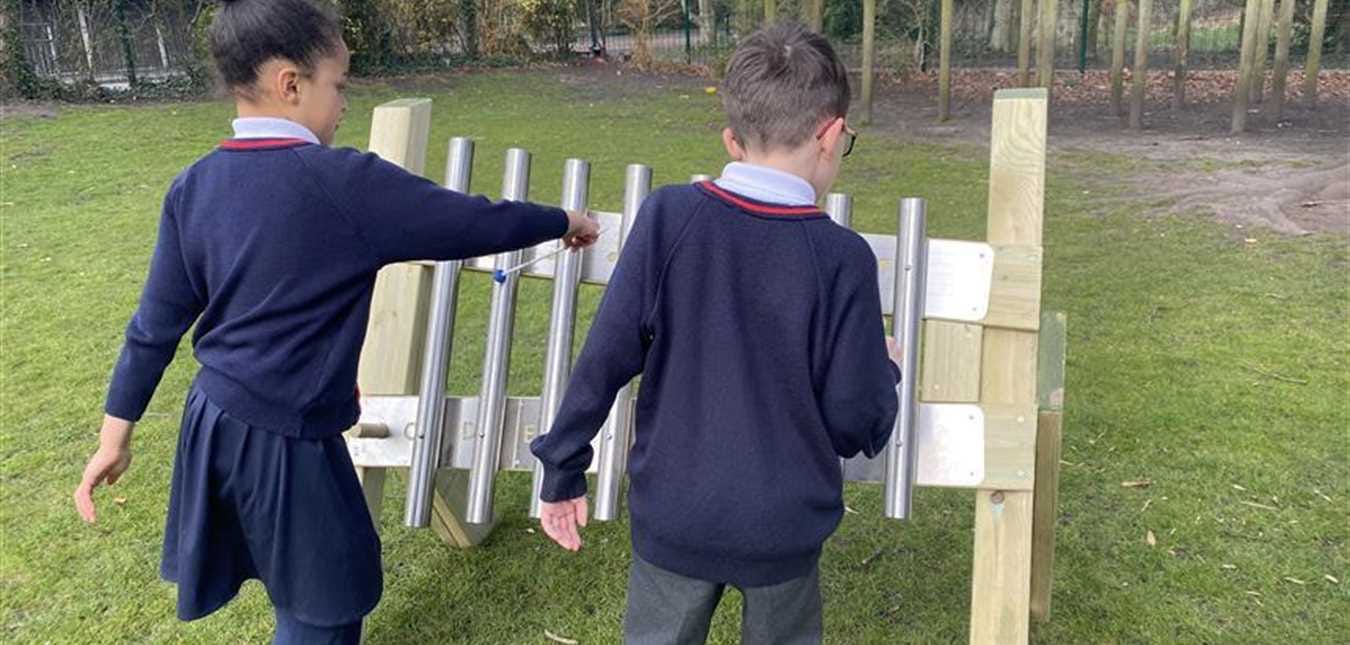
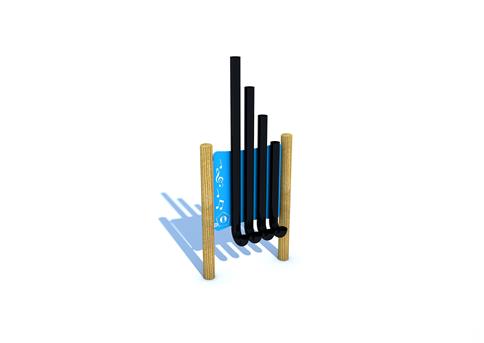
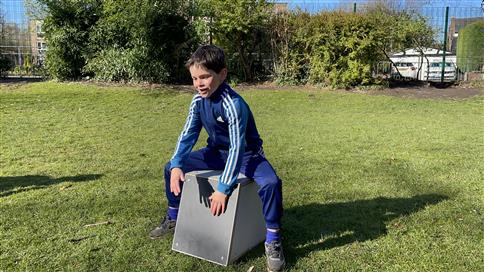

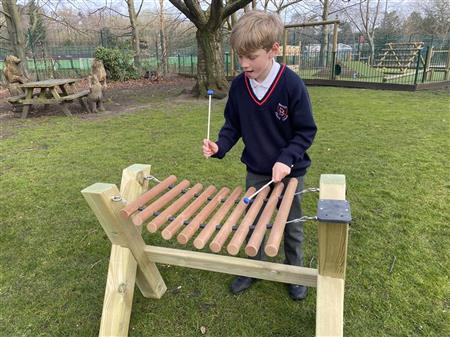
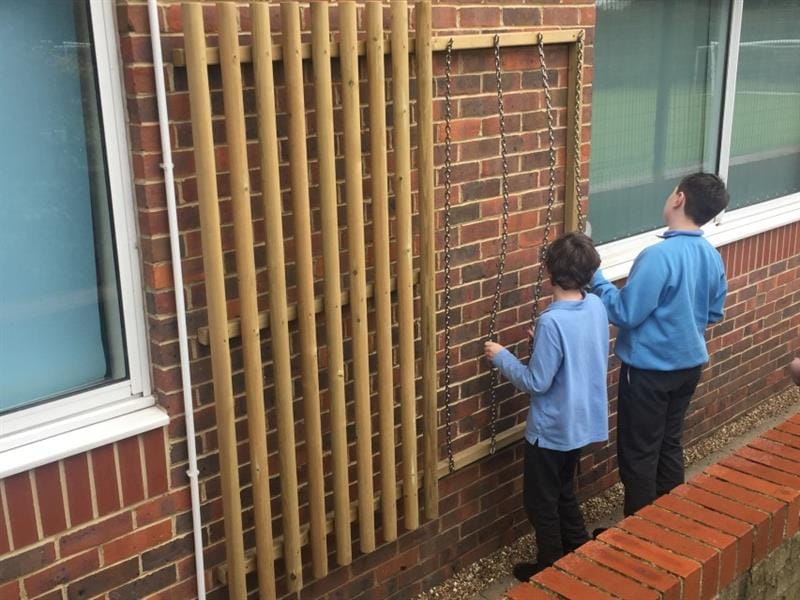
(1).JPG)
